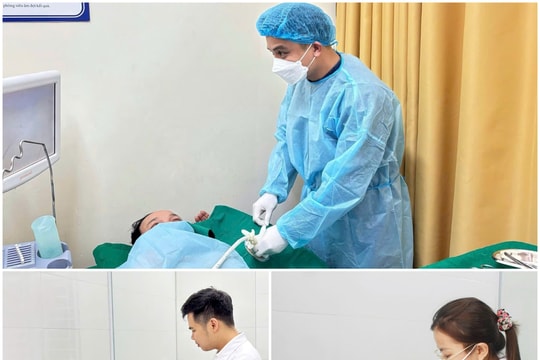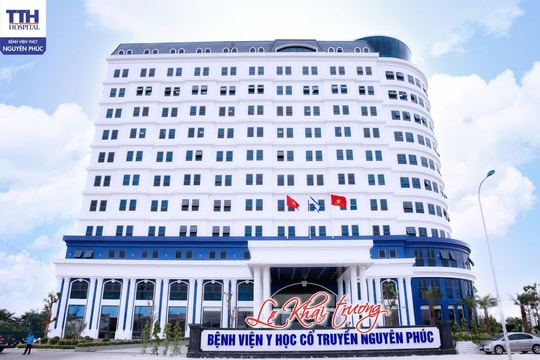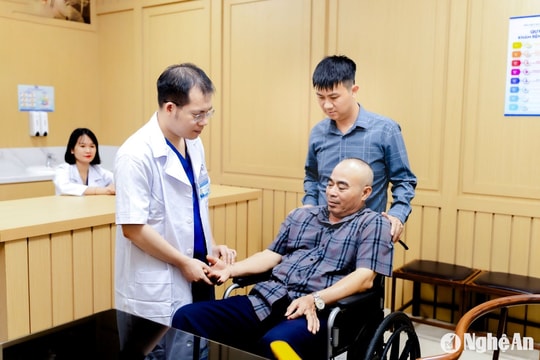The 'golden' solution from traditional medicine, repelling nocturia
Nocturia is a fairly common disease, often related to physiological dysfunction or underlying pathology; especially increasing in people over 50 years old. Not only causing insomnia, nocturia also affects the quality of life and poses a potential risk to overall health.
Causes of nocturia
In healthy people, sleep usually lasts 6-8 hours without interruption to urinate. However, people with nocturia often have to wake up many times, causing sleep interruption and affecting quality of life.
From middle age, kidney function begins to decline, reducing the ability to reabsorb urine. Statistics show that about 50% of middle-aged people and up to 90% of the elderly suffer from nocturia, with the rate increasing.
This condition, if prolonged, can easily cause fatigue, weakness, and seriously affect physical and mental health as well as daily activities. If it is due to a medical condition and not treated promptly, the patient may face many dangerous complications.
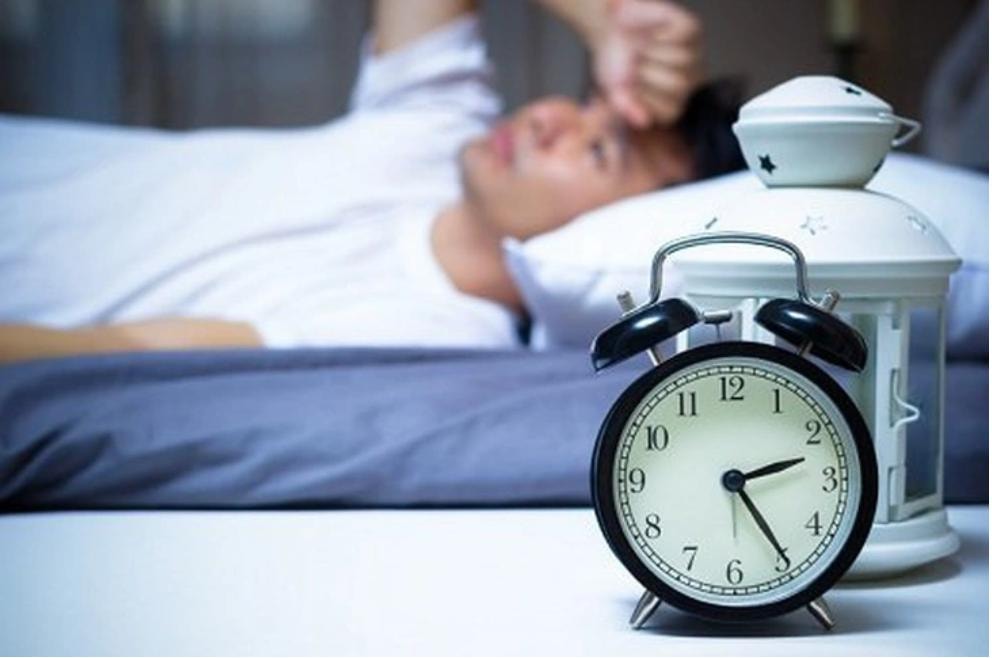
There are many causes of nocturia, which can be divided into two specific groups as follows:
- Pathological causes of nocturia: Physiological changes due to age, prostate enlargement, neurological diseases, sleep disorders, heart failure, type 2 diabetes.
- Causes of nocturia not due to disease: Psychological instability, pregnant women, old age, diet. According to traditional medicine, nocturia is mostly due to the kidneys (not being able to hold urine at night), weak blood and qi (causing frequent urination, uncontrolled urination), heart and spleen (causing restless sleep, easily awakened due to bladder stimulation). Lung qi (not being able to regulate the water channel)"; requires coherence and rationality
Frequent urination at night: Don't take it lightly
Frequent urination at night causes the patient to wake up continuously, interrupting sleep, leading to a state of intermittent, shallow sleep. In the long term, this seriously affects health: the body is tired, the nervous system is weakened, the ability to concentrate is reduced, leading to a decrease in work efficiency and daytime activities.
For the elderly – a group of people with weak bones and joints, poor eyesight, and often in a state of drowsiness after waking up – moving in the dark is potentially risky.
More dangerously, nocturia is considered a "silent killer" in the elderly, as it can triple the risk of coronary artery disease, stroke and even death.
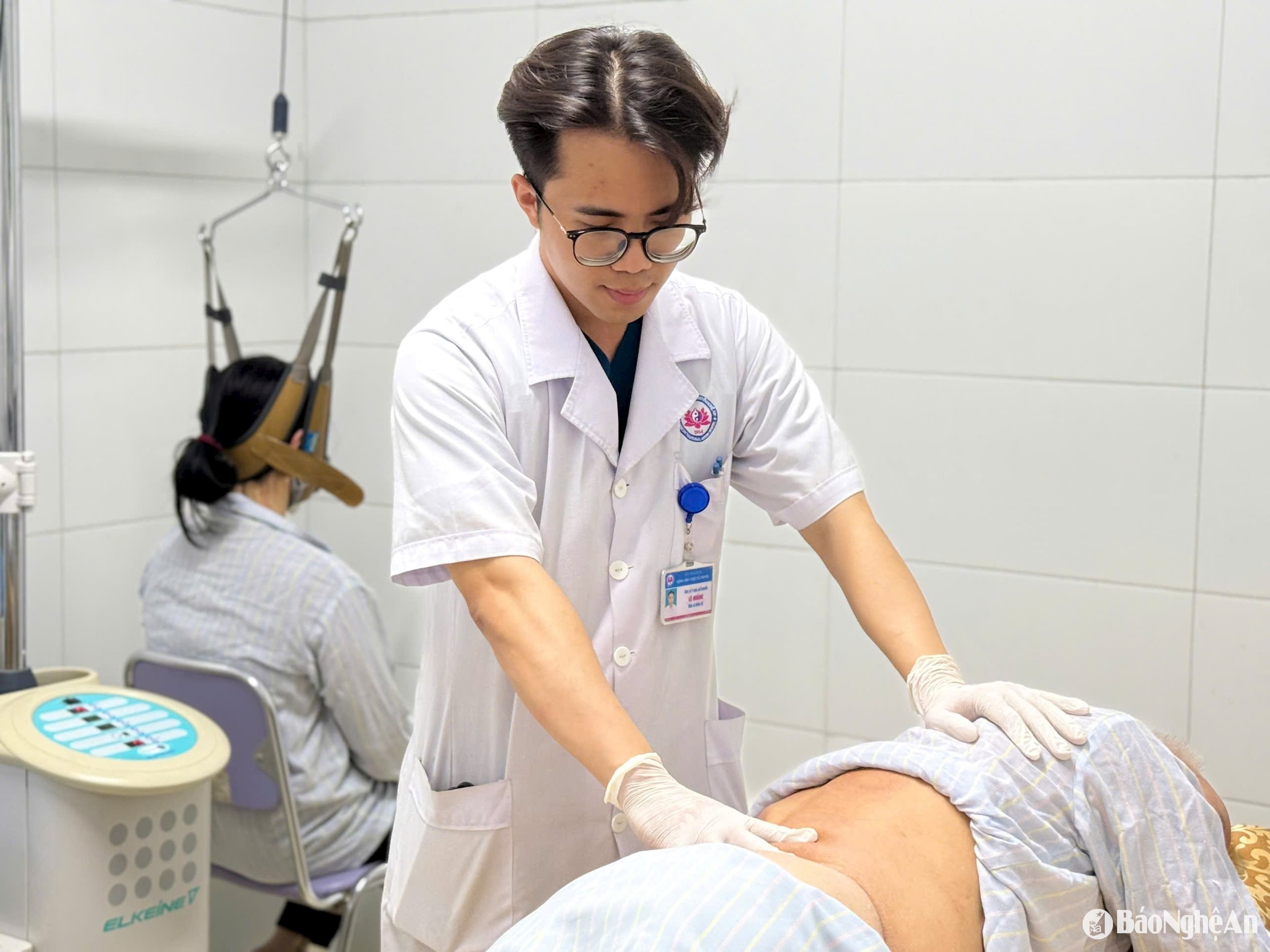
Traditional medicine method to end the worry of nocturia
At Nghe An Traditional Medicine Hospital, the treatment of nocturia using traditional medicine combined with physical therapy and rehabilitation is showing positive, safe and sustainable results. This method not only helps reduce the number of times you urinate at night but also improves sleep quality, refreshes the mind and enhances overall health. Specifically, treatment techniques include:
Acupuncture, hydroacupuncture: Helps regulate the function of internal organs and meridians.
Massage, acupressure:Promotes relaxation, improves blood circulation, and supports good sleep.
Use of traditional medicine:Has the effect of nourishing the kidneys, strengthening the spleen, and strengthening the astringent, helping to reduce nocturia and improve sleep quality.
Combine a reasonable diet and lifestyle as directed by your doctor to maintain long-term treatment effectiveness.
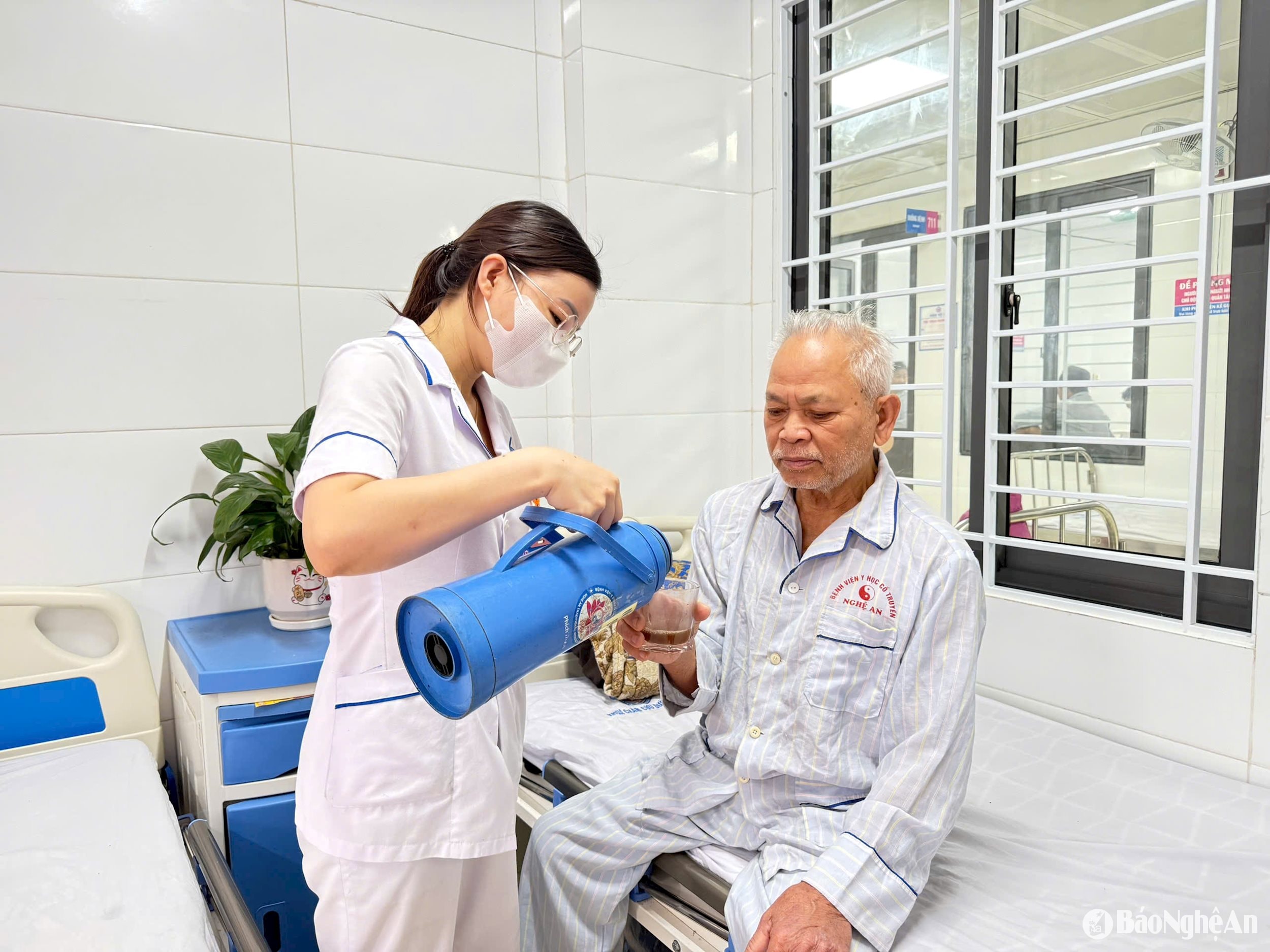
The case of patient Vo Tung Lan (60 years old, residing in Truong Thi ward, Vinh city) is a typical example. He was hospitalized with weakness on the right side of his body, accompanied by nocturia 6-7 times per night, causing him to have prolonged insomnia, and his body was often tired and lethargic. After 5 acupuncture sessions combined with traditional medicine, the number of nocturia decreased to 3-4 times; after 10 sessions, it was only 2-3 times per night. By the end of the treatment, he only urinated 1-2 times per night - a level considered normal for people over 50 years old. Notably, there were nights when he slept straight through until morning, without having to wake up to urinate, his spirit was more excited and his quality of life was significantly improved.
According to the Department of Internal Medicine 7 - Nghe An Traditional Medicine Hospital, every year hundreds of patients come to treat nocturia and the successful treatment rate is over 90%.
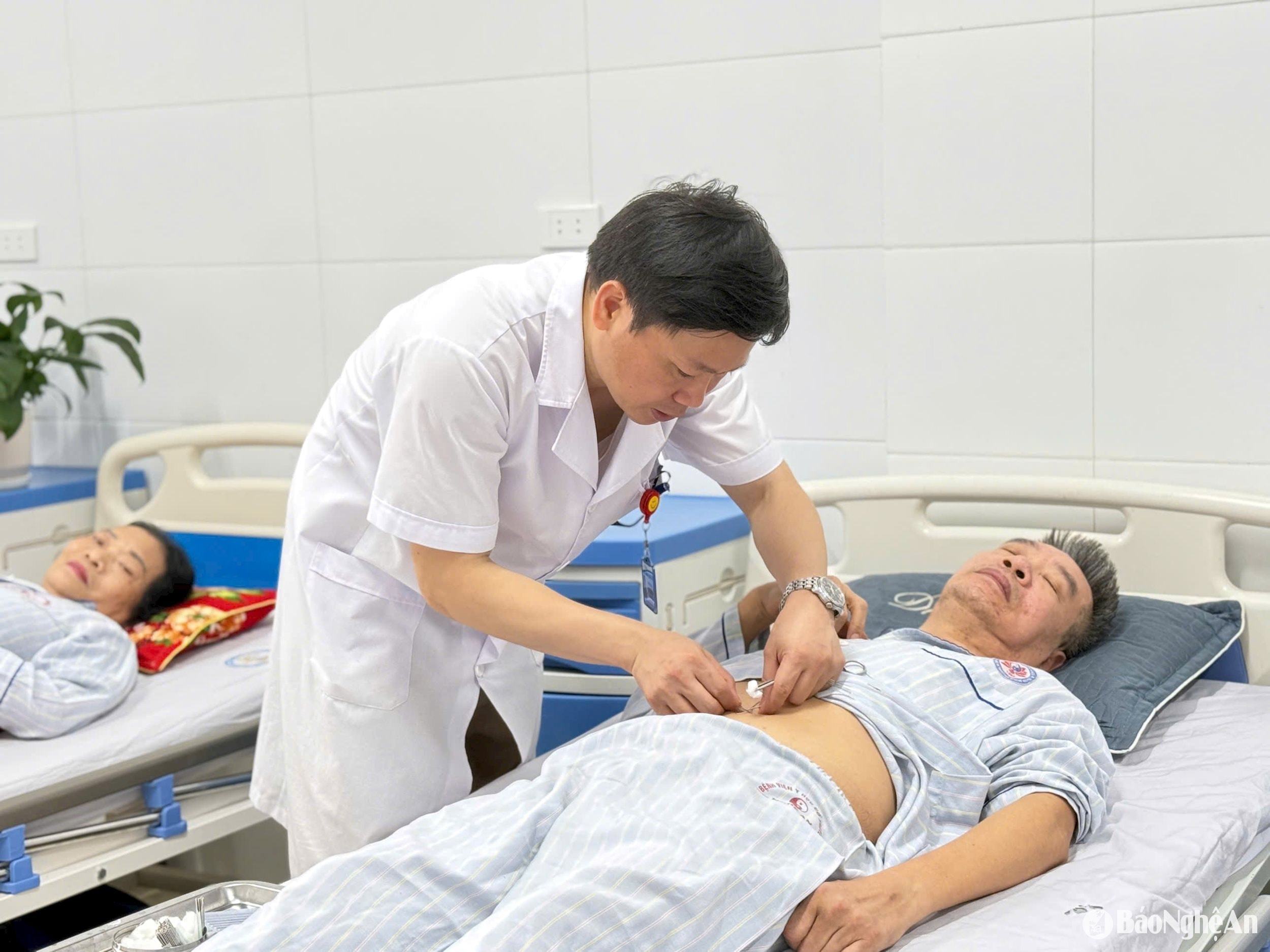
Nocturia, if not treated properly, can cause complications such as chronic insomnia, physical weakness, affecting the heart and blood pressure. Therefore, when symptoms of prolonged nocturia appear, patients should not hesitate or endure but should go to a medical facility for examination, determine the cause and timely treatment.
According to recommendations from kidney and urology experts, to effectively prevent and support the treatment of nocturia, patients need to: Limit drinking a lot of water in the evening, avoid using diuretic foods or spicy, hot dishes; Maintain regular physical activity, practice pelvic floor strengthening exercises to improve bladder control and reduce symptoms of nocturia and frequent urination./.

